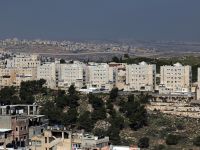Jordan’s King Abdullah sent a strong economic message when, following the recent resignation of the Prime Minister Abider-Ra’uf S. Rawabdeh, he appointed two-time Industry and Trade Minister Ali Abdul Ragheb in his place, and reconfirmed the government’s commitment to sweeping economic and financial reform. The team led by Finance Minister Michel Marto will remain intact, and the economic liberalization process will now be managed by both Marto and Ragheb, who during the past year chaired the Financial and Economic Affairs Committee of the Jordanian parliament’s Lower House. Jawad Hadid who used to head the Arab Banking Corporation is the new Minister of Planning, and Wasif Azar, director general of Al Ahli Bank, is the new Minister of Trade and Industry.
Rawabdeh’s resignation marks the end to a strained 15-month tenure in which his authority was frequently challenged. Earlier in his term, the former premier became caught up in a high-stakes corruption scandal involving his son, who was accused of accepting bribes while awarding lucrative commercial contracts.
In April, parliamentarians sent a letter of complaint to King Abdullah accusing Rawabdeh of nepotism, corruption and failing to deliver on his promises of economic and political reform. While the king publicly backed his Prime Minister at that time, Rawabdeh opposition to the Aqaba Special Economic Zone (SEZ) precipitated his demise. He contended that the SEZ, a project headed by Ragheb, would convert Aqaba, the Kingdom’s sole outlet to the sea, into a smuggling hub and at the same time undermine its Jordanian identity. But taking up such a position, he came to be at loggerheads with King Abdullah, who is vigorously seeking to attract foreign capital to his resource-lacking country.
The SEZ project, which is due to open in January 2001, aims to establish an economic zone like that of Singapore or Dubai’s Jebel Ali. Customs will be abolished and taxes lowered to 5 percent on income and 7 percent on services and retail sales—compared with a blanket 13 percent sales tax in the rest of the country.
But, while the SEZ aims to allure foreign investment to the Aqaba area, several Jordanian lawmakers fear it may deter projects from other regions in the Kingdom, which lack similar concessions. However, Ragheb believes that investments in the Aqaba area will not come at the expense of other districts, since 50 percent of the projects in the Read Sea resort will be in tourism and 30 percent will be related to auxiliary services such as shipping. In addition, the project is expected to create thousands of jobs, and that in a country where the official unemployment rate stands at 15 percent—although analysts appraise that the actual rate is to be roughly 27 percent.
Jordan is presently in a weak financial position with a trade deficit of JD 213 million ($300 million) during the first two months of 2000, compared to JD 151 million (almost $213 million) during the corresponding period in 1999. Furthermore, because of rising oil prices, the budget deficit is also certain to rise above 7 percent of the state’s GDP. The country’s real GDP growth, which has lingered below the 2 percent-mark for several successive years, is projected to reach between 2-2.5 percent this year.
King Abdullah faces a struggle to form the Kingdom’s economy. While he should enjoy the support of the business community in privatizing unprofitable state-owned enterprises, powerful groups with invested interests will undoubtedly continue to block such plans. Nevertheless, with King Abdullah’s appointment of Ragheb as prime minter, the new Jordanian cabinet shares a similar set of values and goals, among the most important of which are to integrate Jordan into the global economy and establish the Kingdom as a regional IT center.







